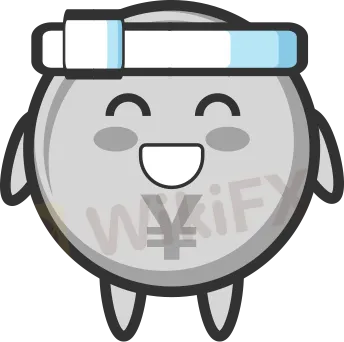简体中文
繁體中文
English
Pусский
日本語
ภาษาไทย
Tiếng Việt
Bahasa Indonesia
Español
हिन्दी
Filippiiniläinen
Français
Deutsch
Português
Türkçe
한국어
العربية
What Is Traded In Forex?
Abstract:Think of buying a currency as buying a share in a particular country, kinda like buying shares in a company. The price of the currency is usually a direct reflection of the market’s opinion on the current and future health of its respective economy. In forex trading, when you buy, Japanese yen, you are basically buying a “share” in the Japanese economy.
The simple answer is MONEY. Specifically, currencies.
Because you're not buying anything physical, forex trading can be confusing so well use a simple (but imperfect) analogy to help explain.
Think of buying a currency as buying a share in a particular country, kinda like buying shares in a company.
The price of the currency is usually a direct reflection of the markets opinion on the current and future health of its respective economy.
In forex trading, when you buy, say, the Japanese yen, you are basically buying a “share” in the Japanese economy.

You are betting that the Japanese economy is doing well, and will even get better as time goes.
Once you sell those “shares” back to the market, hopefully, you will end up with a profit.
In general, the exchange rate of a currency versus other currencies is a reflection of the condition of that countrys economy, compared to other economies.
By the time you graduate from this School of WikiFX, youll be eager to start working with currencies.
Major Currencies
While there are potentially lots of currencies you can trade, as a new forex trader, you will probably start trading with the “major currencies”.

They‘re called “major currencies” because they’re the most heavily traded currencies and represent some of the worlds largest economies.
Forex traders differ on what they consider as “major currencies”.
The uptight ones who probably got straight As and followed all the rules as children only consider USD, EUR, JPY, GBP, and CHF as major currencies.
Then they label AUD, NZD, and CAD as “commodity currencies”.
For us rebels, and to keep things simple, we just consider all eight currencies as the “majors”.
Below, we list them by their symbol, country where theyre used, currency name, and cool nicknames.
| CODE | COUNTRY | CURRENCY | NICKNAME |
| USD | United States | Dollar | Buck |
| EUR | Eurozone | Euro | Fiber |
| JPY | Japan | Yen | Yen |
| GBP | Great Britain | Pound | Cable |
| CHF | Switzerland | Franc | Swissy |
| CAD | Canada | Dollar | Loonie |
| AUD | Australia | Dollar | Aussie |
| NZD | New Zealand | Dollar | Kiwi |

Currency symbols always have three letters, where the first two letters identify the name of the country and the third letter identifies the name of that country‘s currency, usually the first letter of the currency’s name.
These three letters are known as ISO 4217 Currency Codes.
By 1973, the International Organization for Standardization (ISO) established the three-letter codes for currencies that we use today.

Take NZD for instance…
NZ stands for New Zealand, while D stands for dollar.
Easy enough, right?
The currencies included in the chart above are called the “majors” because they are the most widely traded ones.
DID YOU KNOW? The British pound is the world‘s oldest currency that’s still in use, dating back to the 8th century. The newest currency in the world is the South Sudanese pound, made official on July 18, 2011.
We‘d also like to let you know that “buck” isn’t the only nickname for USD.
Theres also: greenbacks, bones, benjis, benjamins, cheddar, paper, loot, scrilla, cheese, bread, moolah, dead presidents, and cash money.
So, if you wanted to say, “I have to go to work now.”
Instead, you could say, “Yo, I gotta bounce! Gotta make them benjis son!”
FUN FACT: In Peru, a nickname for the U.S. dollar is Dodo, which is a pet name for Jorge (George in Spanish), a reference to the portrait of George Washington on the $1 note?

Disclaimer:
The views in this article only represent the author's personal views, and do not constitute investment advice on this platform. This platform does not guarantee the accuracy, completeness and timeliness of the information in the article, and will not be liable for any loss caused by the use of or reliance on the information in the article.
Read more

Forex is a game that I enjoy playing
These champions have one thing in common: they not only work their butts off, but they also enjoy what they do.

Wait patiently. Maintain your discipline
"Patience is the key to everything," American comic Arnold H. Glasgow once quipped. The chicken is gotten by hatching the egg rather than crushing it."

There isn't a Holy Grail to be found!
Ask any Wall Street quant (the highly nerdy math and physics PhDs who build complicated algorithmic trading techniques) why there isn't a "holy grail" indicator, approach, or system that generates revenues on a regular basis.

Concentrate on the Process. Profits aren't a priority
We've designed the School of WikiFX as simple and enjoyable as possible to help you learn and comprehend the fundamental tools and best practices used by forex traders all over the world, but keep in mind that a tool or strategy is only as good as the person who uses it.
WikiFX Broker
Latest News
What is a Stop Out Level?
Challenges of A-Book Execution
Japanese Candlestick Anatomy
What is the difference between support and resistance?
Candlesticks with Support and Resistance
Dual Candlestick Patterns
Basic Japanese Candlestick Patterns
How to Place Your Stop Using Fibonacci to Lose Less Money
What is the Difference Between Double Tops and Double Bottoms?
Bearish and Bullish Pennants and How to Trade Them
Currency Calculator


